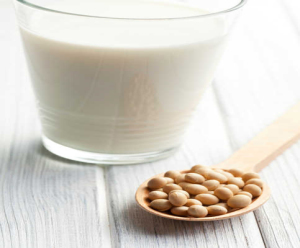
New York, Overturning prevalent suggestions that breast cancer patients should not to eat soy foods, new research has found that long-term consumption of these foods actually reduces the risk of the disease recurring.
“This work suggests it is okay to continue consuming soy foods during breast cancer treatment,” said the study’s lead investigator Leena Hilakivi-Clarke, professor of oncology at the Georgetown Lombardi Comprehensive Cancer Center in the US.
Women diagnosed with breast cancer are often told not to eat soy foods or soy-based supplements because they can interfere with anti-estrogen treatment.
The notion that soy, specifically genistein (an isoflavone), can stimulate the growth of breast cancer cells and disrupt anti-estrogen treatment has been based on studies in mice that do not have immune cells known as cytotoxic T cells, known to attack breast cancer.
This led oncologists to advise their breast cancer patients not to eat soy foods.
The researchers found that in rats fed soy, specifically genistein (an isoflavone – organic compound), since before puberty, the T cell immune response was activated already before they started treatment with tamoxifen (an anti-estrogen therapy).
Also, during the treatment, the tumour’s attempt to hide from an immune system attack was thwarted.
“Our results suggest that genistein’s ability to activate anti-tumour immune responses and reduce expression of immunosuppressive mechanisms may explain why lifetime genistein intake reduces risk of breast cancer recurrence,” Hilakivi-Clarke noted.
“But it is critical that genistein is consumed well before a tumour develops to program the tumour to exhibit good immune responses,” Hilakivi-Clarke’s doctoral student Xiyuan Zhang, the lead author of the current study, noted.
The study was presented at the American Association for Cancer Research (AACR) Annual Meeting 2015 in Pennsylvania.
Breaking News
 Driving Naari Programme launched in Chandigarh
Driving Naari Programme launched in Chandigarh Punjab farmers reaping benefits of Mann Government’s crop diversification initiatives
Punjab farmers reaping benefits of Mann Government’s crop diversification initiatives Punjab and Kerala Join Hands to Address NRI Concerns
Punjab and Kerala Join Hands to Address NRI Concerns Macron refuses French Prime Minister’s resignation after chaotic election results
Macron refuses French Prime Minister’s resignation after chaotic election results Modi lands in Russia for first visit since Ukraine offensive
Modi lands in Russia for first visit since Ukraine offensive Saudi Arabia approves granting citizenship to global experts under Vision 2030
Saudi Arabia approves granting citizenship to global experts under Vision 2030 Vigilance arrests Panchayat Secretary, former Sarpanch for embezzlement in Panchayat funds
Vigilance arrests Panchayat Secretary, former Sarpanch for embezzlement in Panchayat funds Housing crisis in Canada forcing residents to move out of pricier cities: Poll
Housing crisis in Canada forcing residents to move out of pricier cities: Poll Historic Milestone: Canada Appoints Its First Female Chief of Defense
Historic Milestone: Canada Appoints Its First Female Chief of Defense Victory parade of T20 World Cup-winning Indian cricket team concludes in Mumbai
Victory parade of T20 World Cup-winning Indian cricket team concludes in Mumbai Maximizing impact of Aadhar in Punjab
Maximizing impact of Aadhar in Punjab Amritpal Singh to take oath as Khadoor Sahib MP on July 5
Amritpal Singh to take oath as Khadoor Sahib MP on July 5



































